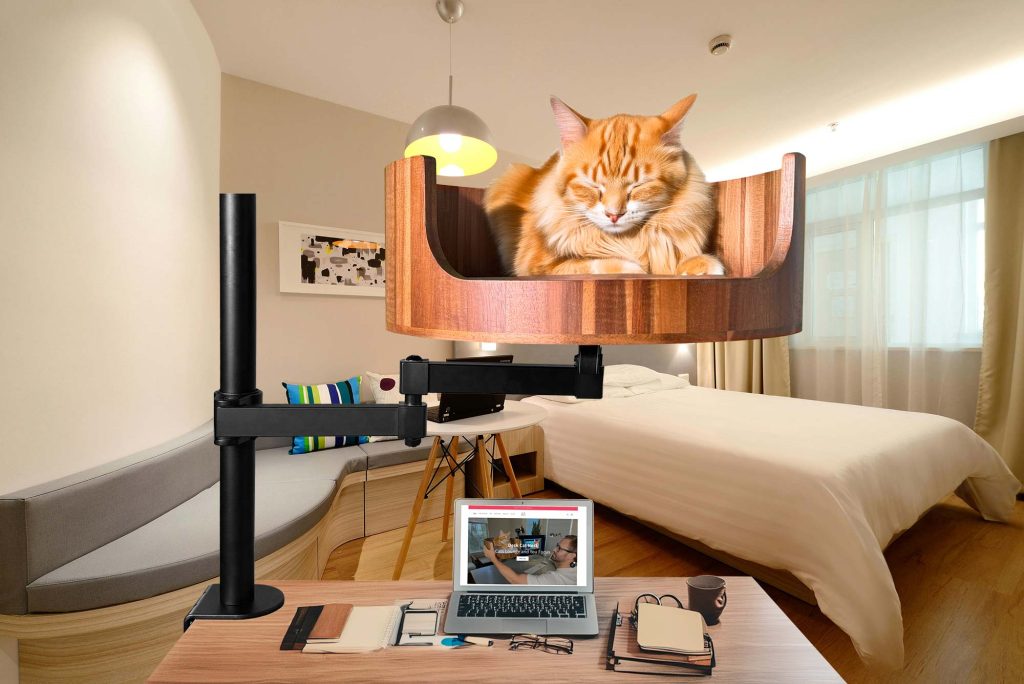Tired of waking up to the unpleasant surprise of your beloved feline friend peeing on your bed? You’re not alone. Cats are known for their independent nature, but when it comes to marking their territory on your fresh sheets, it can be quite frustrating. If you’re at your wit’s end and wondering what to do next, you’ve come to the right place. In this article, we’ll explore the reasons why cats may be peeing on your bed and provide practical solutions to help nip this behavior in the bud.
One common culprit for cats urinating on beds is stress or anxiety. Cats are sensitive creatures, and changes in their environment or routine can trigger feelings of insecurity, leading to improper elimination habits. Other potential reasons include physical health issues such as urinary tract infections or behavioral problems like improper litter box training. By understanding the root cause of your cat’s behavior, you can take proactive steps to address the issue and restore harmony in your home. Stay tuned as we delve into effective strategies to deter your feline friend from turning your bed into their personal litter box.
1. Understand the reasons behind why your cat may be urinating on your bed, such as stress, health issues, or territorial behavior.
2. Take your cat to the vet to rule out any medical causes for the behavior.
3. Provide your cat with a comfortable and secluded litter box area, away from noisy or high-traffic areas.
4. Use pheromone diffusers or sprays to help calm your cat and reduce stress.
5. Consider consulting with a professional animal behaviorist for personalized advice on how to address and correct your cat’s inappropriate elimination behavior.
Understanding Why Cats Pee on Beds
Cats may urinate on beds for various reasons, such as medical issues, territorial marking, stress, or behavioral problems. It is essential to rule out any health issues by taking your cat to the vet for a check-up. If the behavior is not caused by a medical condition, it could be due to stress or anxiety, especially if there have been recent changes in the household or routine. Cats are also territorial animals, and they may urine-mark areas, including your bed, to establish their presence.
Preventing Cats from Peeing on Beds
There are several steps you can take to prevent your cat from urinating on your bed. Start by ensuring that your cat has access to a clean litter box that is placed in a quiet and private location. Regularly scoop the litter box and clean it at least once a week to maintain hygiene. Additionally, provide multiple scratching posts and toys to keep your cat entertained and mentally stimulated. Consider using pheromone diffusers or calming collars to help reduce your cat’s stress levels.
Training Your Cat to Stop Peeing on Beds
To train your cat to stop peeing on your bed, you can start by making the bed less attractive to them. Use double-sided tape or aluminum foil on the bed to deter your cat from jumping on it. You can also try using a citrus-scented spray or a motion-activated deterrent to keep your cat away from the bed. Reward your cat for using the litter box by giving them treats or verbal praise. If the behavior continues, consult with a professional animal behaviorist for further assistance.
Seeking Professional Help
If your cat continues to pee on your bed despite your efforts to prevent or train them, it may be time to seek professional help. A veterinarian or animal behaviorist can help determine the underlying cause of the behavior and provide you with a tailored plan to address it. They may recommend behavior modification techniques, medication, or environmental changes to help resolve the issue. Remember to be patient and consistent in your efforts to help your cat overcome their urination problem.
Desk Cat Nest FAQ
Why is my cat peeing on my bed?
There could be several reasons why your cat is peeing on your bed, such as stress, medical issues, or marking territory. It’s important to rule out any medical causes before assuming it’s a behavioral issue.
How can the Desk Cat Nest help with my cat’s peeing issue?
The Desk Cat Nest provides a comfortable and secluded space for your cat to rest and relax. By giving your cat a designated space that is their own, it can help reduce stress and prevent them from peeing on your bed.
Is the Desk Cat Nest easy to clean?
Yes, the Desk Cat Nest is designed for easy cleaning. The removable cushion can be machine washed, and the overall structure can be wiped down with a damp cloth.
Will my cat actually use the Desk Cat Nest?
While we can’t guarantee that every cat will automatically take to the Desk Cat Nest, many cat owners have found success in getting their cats to use it by placing their cat’s favorite toys or treats inside to entice them.
Can the Desk Cat Nest be used for multiple cats?
Yes, the Desk Cat Nest can accommodate multiple cats as long as they are comfortable sharing the space. Adding additional cushions or toys can help make the space more appealing to multiple cats.
In conclusion, the Desk Cat Bed is a valuable solution for cats who keep peeing on your bed. Its elevated design provides a comfortable and secure space for your feline friend to rest and sleep, reducing the likelihood of accidents on your bed. The soft and cozy materials also make it an inviting spot for your cat to relax, minimizing the urge to mark their territory in unwanted places. With the Desk Cat Bed, you can enjoy a clean and odor-free bed while giving your cat the comfortable resting spot they deserve. Make the smart choice and invest in a Desk Cat Bed today.


